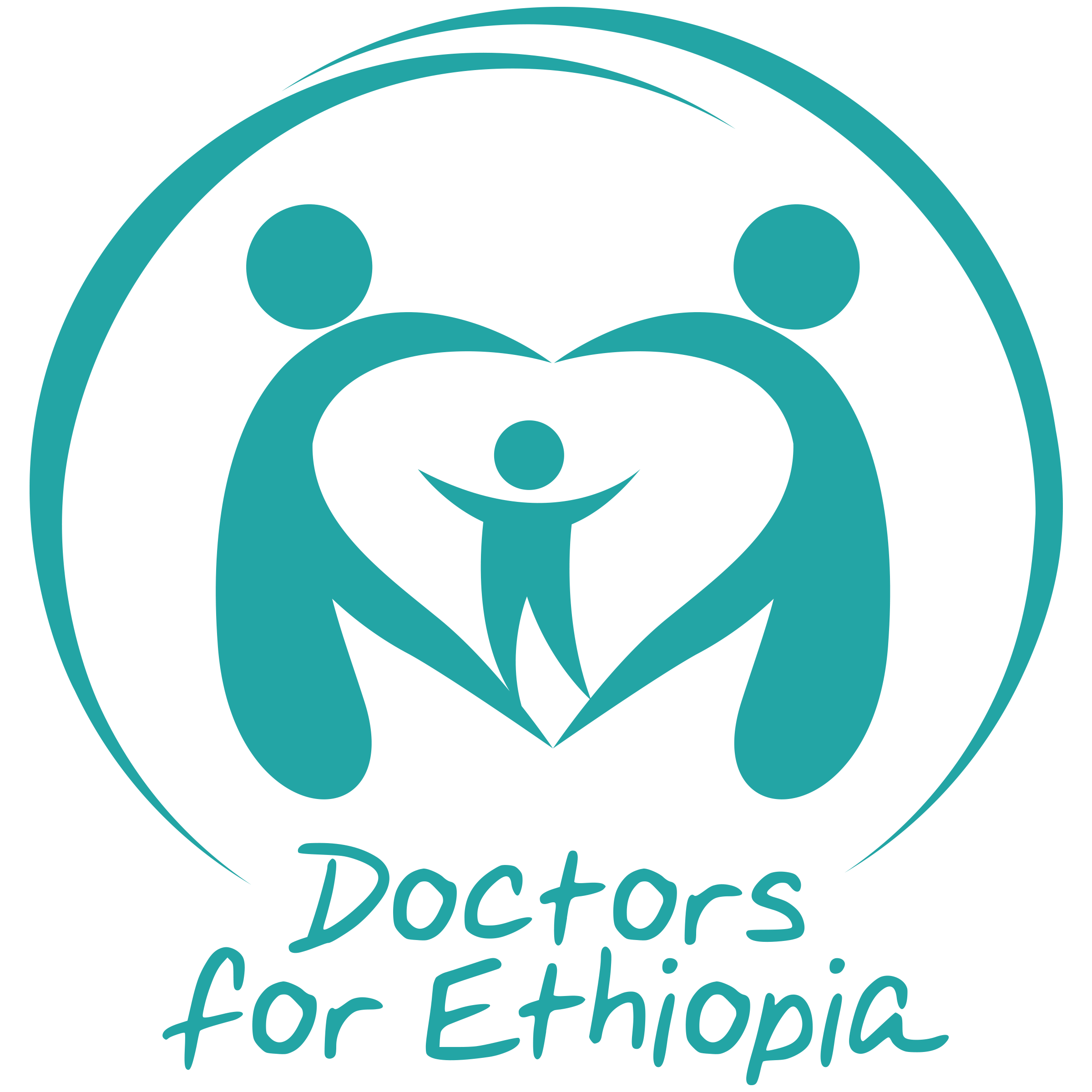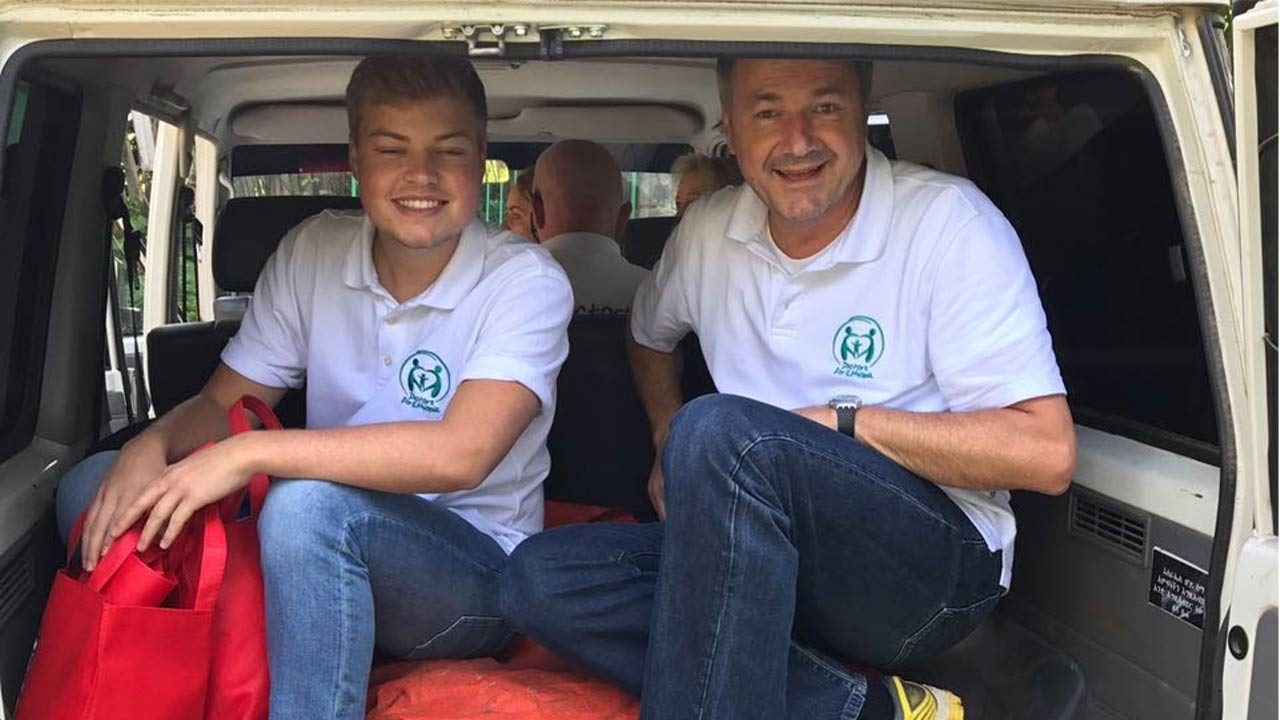Through our friends Dr. Peter and Ulrike Travnik, my parents became aware of the organization “Doctors for Ethopia”. They decided, on the occasion of their 50th birthday, to donate money and accompany “Doctors for Ethopia” for a week on a trip to Ethiopia.
This idea excited me and so I spontaneously decided to join them in Ethiopia. It was my first trip to Africa and I was very excited about what to expect.
The first surprise was the arrival in Awassa. The airport consisted of a small shack, which turned out to be a terminal.
Around Lake Awassa, people live in mud huts, keeping their heads above water through subsistence farming. The drive towards Yilgarem took about2 hours and was on mostly dirty roads. We saw countless donkey carts used to transport materials, many women hauling several buckets of water, and children playing with a ball shaped from plastic garbage. Suddenly I was in the middle of a new cultural environment, which was extremely exciting for me.
In Yilgarem, where moreover the hospital is located, we stayed in a lodge that consisted of several beautiful tent-like cottages. Once we arrived at the hospital, we immediately got to know the local medical team and also the accompanying doctors from “Doctors for Ethiopia”. Although I, as a business student, have nothing to do with medicine, I was immediately integrated and was allowed to accompany the medical team on rounds. Without knowing exactly what to expect, I experienced everyday hospital life and was also able to gain insights into the operating room. It was also impressive to visit the newly built mother-child clinic, which was equipped by “Doctors for Ehiopia” through donations, e.g. with new beds and incubators.
The difference to German hospitals is extreme: sparse examination rooms, lack of supply facilities and partly poor hygiene conditions.
Despite the poor conditions, one could sense that the doctors are doing everything they can to alleviate suffering and save lives. The will is there, but small but essential things are often lacking. Non-functioning water taps or the lack of connecting cables for nacosis devices made me think. I quickly realized that the local doctors are not only dependent on the medical know-how of German doctors, but also need technical support, e.g. from craftsmen. The activities of “Doctors for Ethiopia” could be further expanded in this direction.
We also visited an orphanage in Awassa. The joy of the children will remain in my memory for a long time, when we gave them small toy cars and pencils for painting.
On the way home we visited the capital Addis Ababa. There we went to the biggest market in Africa, the Mercato. A sea of corrugated iron huts and plastic tents with innumerable dealers, who offered among other things spices, cloth goods and animals.
Surrounded by slum-like settlements is a 5-star hotel with a huge garden and pool area in the middle of the city. The contrast between poor and rich could not have become visibly any stronger.
All in all, the visit to Ethiopia was a very interesting experience for me. I am inspired to continue my social engagement and to support “Doctors for Ethiopia”. Every little bit of support can help to alleviate the need on site.
Tim (20)

